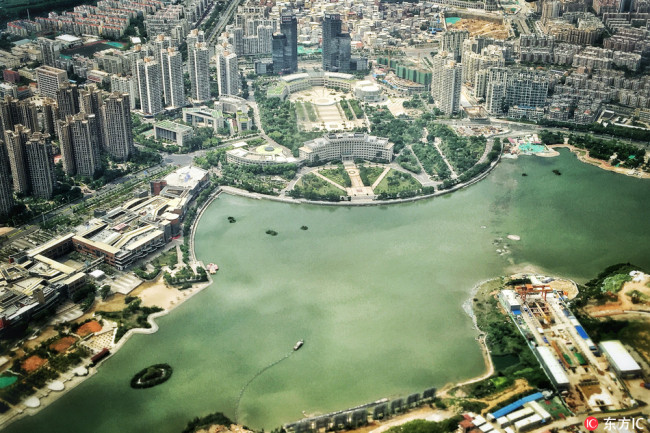BRICS helps global economy with growing weight
By George N. Tzogopoulos
China will host the 9th annual summit of BRICS in the southeast coastal city of Xiamen, in the province of Fujian, from 3 until 5 September 2017. This provides a good opportunity for the country to re-attract international attention and outline its ability to successfully organise world-class events. Previous examples in the last twelve months include the G20 Hangzhou Summit of last September and the Belt and Road Forum for International Cooperation of last May.
As far as the forthcoming Xiamen meeting is concerned, it is taking place at a critical moment for the world economy. While steps for stabilization have been made and recovery signals are evident, more efforts are required to avoid setbacks. In that regard, the role of developing economies is gradually gaining ground. According to a recent report of the International Monetary Fund, forecasts for the growth of countries like China and India is much higher than the predicted medium for the world performance, which is expected to be 3.5 percent. Forecasts for the former’s growth is 6.7 percent and for the latter’s 7.2 percent.

The impressive cityscape of Xiamen city, southeast China's Fujian province, 31 August 2017, host city of the 9th BRICS summit taking place between 3 and 5 September. [Photo: dfic.cn]
Subsequently, more coordination among the BRICS can also yield positive results. Numbers speak for themselves. The percentage the five BRICS countries share in global economy has increased from 12 percent ten years ago to 23 percent in 2016. Moreover, the BRICS group is a growing force in global trade, accounting for 16 percent in 2016 from 11 percent in 2007. And overseas investment originating from the five members increased to 12 percent in global total in 2016 from seven percent in 2007.
Perspectives for investments are even brighter due to the launch of the New Development Bank. Last year the new financial instrument granted $1.5 billion dollars in loans to seven projects with emphasis on green energy and infrastructure. For 2017 and 2018 the Bank is carrying out 23 projects, with a total lending amount of $ 6 billion. As its President, K.V. Kamath, has said, five projects among them, totaling $1.7 billion dollars, are in China, six in India, seven in Brazil, two in Russia, and three in South Africa.
From another perspective, this year’s BRICS Summit can send a strong message against protectionism. While free trade is not taken for granted under the current Trump presidency, the five stronger emerging economies will be able to present – from Xiamen – their collaboration as a model for openness and inclusiveness in the modern era of globalization. Their cooperation might also pave the way for some critical changes in world governance in order for the BRICS to acquire a representation which will slowly be analogous to their economic power.
Furthermore, as long as the BRICS cooperation mechanism is strengthened, new ideas of enlargement start to be discussed. The so-called ‘BRICS plus’ does not any longer seem unrealistic. Mexixo, Pakistan, and Sri Lanka could be perhaps candidates to join the founding members. In parallel with the ‘BRICS plus’ concept, regional integration is expanding. Mercosur and the Southern African Customs Union already receive invitations to attend some of the BRICS’ working groups. More organisations could join and despite some differences in integration schemes, the win-win spirit needs to prevail.
In current as well as in future initiatives the role of China will be critical. In July President Xi Jinping underlined that ‘BRICS cooperation will be more productive and usher in a new golden decade’. In that regard, the implementation of the Belt and Road initiative is relevant. Boosting interconnectivity through impressive infrastructure works, this Initiative has turned to be a key reference point since 2013. Although India might be suspicious for political reasons, it is still realising the economic impact of the project which is largely endorsed by numerous world countries.
The fact that this year sees the opening one of the second decade of the BRICS and China holds the rotating presidency of the Group – hosting its annual meeting – is certainly symbolical. As Foreign Minister Wang Yi, has said, Beijing takes ‘its responsibilities for world stability and prosperity as well as for the health development of multilateralism’. These goals go hand in hand with the strengthening of BRICS. And the city where the summit will take place – Xiamen – as well as the province – Fujian – represent both the beginning of the maritime expeditions of Chinese fleets 600 years ago and continuity of interconnectivity in the form of modern trade facilities nowadays.
(Dr George N. Tzogopoulos is a senior research fellow and advisor for EU-China relations at the Centre international de formation européenne, Nice/Berlin.)






